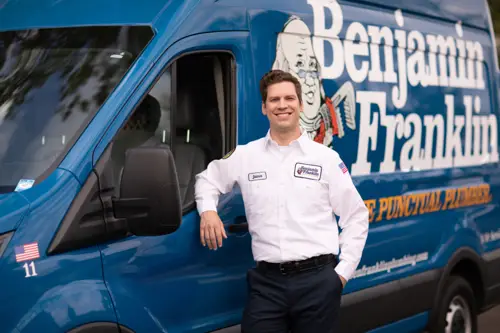 If you are replacing your water heater or need to augment an existing hot water system, you may feel overwhelmed by the many choices of hot water heaters available today. Here, we discuss the differences between tankless and storage water heaters and their advantages and disadvantages.
If you are replacing your water heater or need to augment an existing hot water system, you may feel overwhelmed by the many choices of hot water heaters available today. Here, we discuss the differences between tankless and storage water heaters and their advantages and disadvantages.
Storage Water Heaters
Traditional water heaters, whether heat pump, electric, or fossil-fuel powered, heat and store water in an insulated tank. Storage residential water heaters range in size from just a few gallons to 80 or more gallons.
When you turn on the tap, preheated hot water flows from the top of the tank to the point of demand. Fresh, cold water flows into the bottom of the tank to replace the water drawn off. Unless you turn off the heating element, the tank remains in heating mode to keep the water at a temperature ready to use. The unit uses energy throughout the day to keep water hot.
Advantages of storage water heaters include:
- They are available in several fuel types, including electric, solar, propane, oil, and natural gas, allowing users to select the option that best suits their situation and budget.
- They come in a variety of sizes that can meet the needs of large families or single users.
- Traditional models are less expensive to purchase and install than tankless models.
- New models have better insulated tanks to enhance energy efficiency.
- Heat pump and solar storage water heaters are more energy-efficient than conventional models. Although they cost more to purchase than traditional models, reduced operating costs result in shorter payback periods.
- If you already have a storage water heater, plumbing and hookups are in place, which lowers the installation cost.
- Properly sized equipment delivers a continuous supply of hot water at the set temperature.
Disadvantages include:
- Large units require a large space. Heat pump tank water heaters require approximately 1,000 cubic feet of air around them to draw enough heat energy to transmit to the water.
- Maintaining the set point temperature results in standby heat loss. Gas-, propane-, and oil-fueled models may also lose heat through vents.
- They require occasional flushing of the tank to remove sediments.
- Units powered by fossil fuels should be periodically inspected to ensure burners, ignition, and piping are in good condition. Poorly maintained or leaking units can release carbon monoxide, a toxic gas, into the living space.
- Storage water heaters have a shorter service life than tankless units.
- Units must be sized to meet the demand of simultaneous multiple users. Undersized units may not meet the demand.
Tankless Water Heaters
Demand water heaters supply hot water as needed instead of storing water in a tank. When you turn on the tap, a heat exchanger heats the water flowing through it. Because there is no storage tank, you do not have to wait for water to heat, and there is no standby energy loss.
Whole-house tankless units can provide hot water to multiple outlets. Point-of-use models provide hot water to a single source, such as a shower, sink, or dishwasher, but have a lower flow rate. Gas-powered units have a higher rate of flow than electric units.
Advantages of Tankless Water Heaters:
- They provide instant hot water.
- They are more energy-efficient because there is no standby heat loss.
- They run on electricity, natural gas, and propane, offering a choice of fuels.
- Units are compact, requiring less space.
- The service life is almost double that of storage water heaters.
Disadvantages of Tankless Water Heaters:
- On-demand units operate with lower flow rates than storage models.
- Their purchase price is higher.
- Tankless equipment requires special plumbing that may entail higher installation costs.
- Heat exchangers and other components require maintenance.
- Repairs and replacement parts are often more expensive.
- Gas models have a pilot light that can waste energy, offsetting the energy-saving potential.
Whether you go for a tankless or storage water heater depends on your household needs, budget, and space limitations. Some households opt for both, using one or more tankless models to supply hot water to point-of-use areas, such as showers or sinks, and storage water heaters to supply other needs. If you live in an apartment or have limited space, tankless water heaters provide more options for installation.
The licensed professional plumbers at Benjamin Franklin Plumbing of Gainesville, Florida, install, repair, and service all types of water heaters. We want you to have hot water when you need it. Whether you need a replacement water heater, a new home installation, or need to supplement an existing system, we can help. We will evaluate your household hot water requirements and recommend durable equipment that will meet your needs. Call Benjamin Franklin Plumbing today for all your plumbing needs. We offer a 100% customer satisfaction guarantee and 24-hour emergency services.